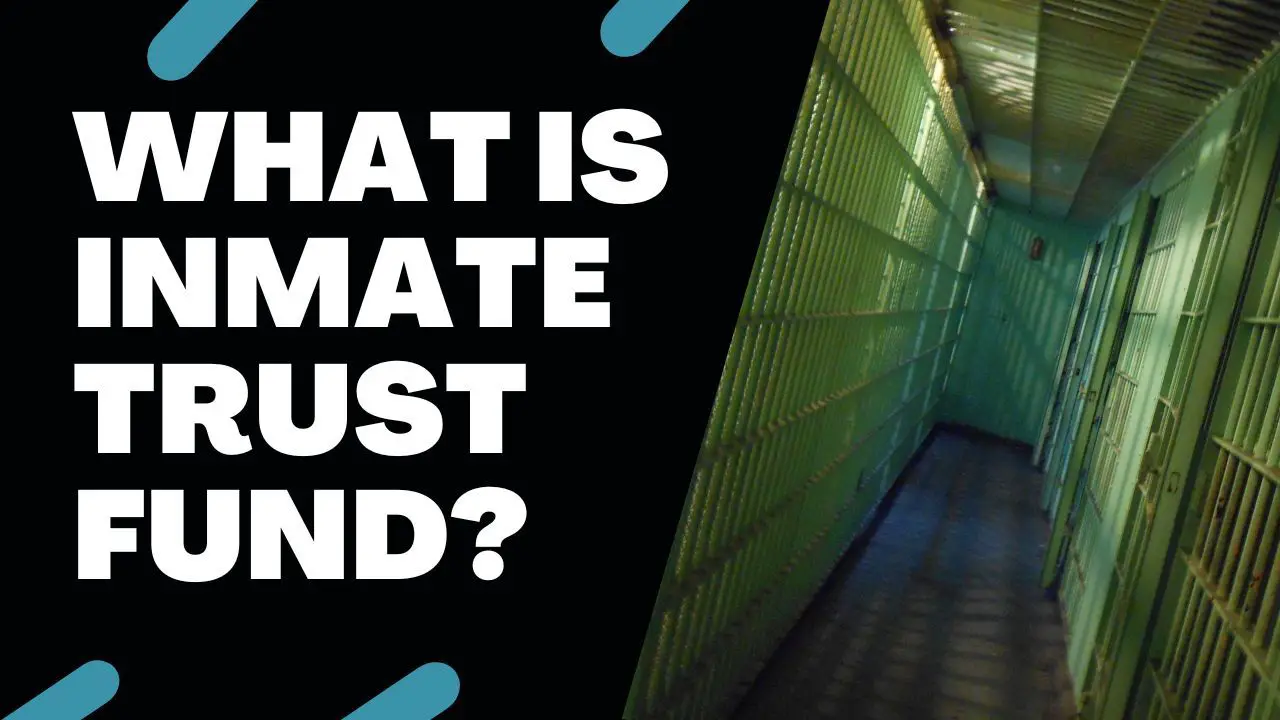What is an Inmate Trust Fund?
What is an inmate trust fund? In this article, we have discussed the inmate trust fund that is responsible for making and receiving funds and payments for inmates.

The Inmate Trust Fund (ITF) office is responsible for receiving funds for inmates, making payments from them, and maintaining all records associated with offender accounts.
An inmate trust fund is essentially the bank account of an offender while they're imprisoned. If they have some kind of a job in prison, their wages are typically deposited into that account, and if they need spending money -- say, for snacks, health or hygiene products, postage, and other items -- they get that from the fund, too. Money in the account will sometimes earn interest, though it's not likely to be a lot.
Prisoner Wages
Prisoners are rarely paid very much, so it can be hard to accumulate a lot of money in inmate funds. For example, according to a 2014 article in The American Prospect, the median wage in state and federal prisons was $0.20 and $0.31 per hour, respectively. Making matters worse, in many cases, the fund will be garnished (per court order) for any alimony or child support due, and sometimes even for the room, board, and fees.
Some prisons deduct regular telephone usage charges, which can be several hundred dollars. Thus, many prisoners have contacts on the outside to deposit money into their accounts by sending funds to a certain address.
How to deposit money into an Inmate Trust Fund
The rules regarding deposits to an inmate trust fund differ by state and prison system, but to give you a representative idea, here's one example from the Texas Department of Criminal Justice (TDCJ): Funds can be deposited in eight ways -- by money order, cashier's check, ACH (Automated Clearing House) transfer, Western Union, credit card or Mastercard, etc.
Cash, personal checks, or stamps cannot be deposited into the account. Depending on which payment method is used, there are different destinations. For example, if you mail a money order, you'd do so to a certain ITF Office address, specifying the inmate's name, ID, and ITF number.
Interestingly, the TDCJ has some precautions for depositors, too. For example, don't send money to an offender you don't personally know. Also, don't send any funds to an offender as a favor for another inmate, and report any extortion cases.
Anyone heading to prison is likely to encounter the inmate trust fund and should learn the rules regarding it in their particular facility.
For U.S. Mail
Funds to ITF can be transferred through the following sources:
- Money Order or Certified/Cashier's Check, with complete and legible remitter information included
- Attorney checks with a cover letter
- Employer checks along with pay stub
- Refund checks from Vendors
- Social security checks
- Social services checks
- Tax refunds
- Unemployment checks
- Veterans Administration checks
When transferring, remember that all checks or money orders must be payable to the inmate.
Sender Information
Remitter information must include the following:
- Inmate first and last name with the middle initial
- Inmate ID number
- Inmate's date of birth
- Sender's first and last name
- Sender's full address (number, Street Address, Apartment/Unit, City, State, and Zip Code)
Include complete and legitimate information with each item that you are sending. Don’t include anything else with the check/money order and remitter form, such as cards, letters, pictures, notes, etc. They will not be forwarded to the inmate. Money orders/checks can be mailed like this:
- Inmate Trust Fund
- P.O. Box Number
- State name, Zip code
Final Check Request
Former inmates can withdraw any funds that remain inside their inmate trust fund. They may request a check for their remaining funds by completing a Request for Account Balance Form and mailing it to the respective trust fund office in their state or county.
Unclaimed Inmate Accounts
Accounts that have been left unclaimed for too long can be claimed by writing to the ITF office and enclosing a form for claiming the account.
There are a few things to ensure while you are doing that.
If your name is not mentioned on the mailbox, please include the name that does appear on it.
The Unclaimed Inmate Account Form must be completed and signed by the person to whom the account belongs. The check will only be made payable to that individual.
All checks issued and not cashed within a year from the date of issue will be considered forfeit and shall be voided and the funds transferred to the Correctional General Welfare fund. Inmate numbers associated with Unclaimed Inmate Accounts shall remain on this list for 12 months unless claimed.
How to qualify as a sender
Friends and family members can send funds to their inmates in various ways; the inmate then, in turn, can use these funds to purchase items from the commissary. The commissary is like a small store within the institution that sells stationery items (like paper, writing instruments, stamps, envelopes, etc.), hygiene items (like soap, shampoo, shavers, etc.), clothing items (towels, socks, shirts, etc.), food and snacks, and sometimes small entertainment items like books, puzzles, games, cards, radios, and other electronics. If inmates are found guilty of a disciplinary infraction, an administrative fee of $100 will be imposed.
Some states don’t require your name to be on the inmate’s visitors list for you to be able to send money to their account. You should make sure what the policies are in your state and the specific facility where you send the funds before making the transfer.
Check on a Deposit Made to an Inmate's Trust Account
If you want to see whether the money you deposited to an inmate's account reached them or not, you go visit the DOC portal and enter the inmate’s ID to find out.
Programs for inmates in Prison
Inmates at most State Prisons are offered a wide range of programs where they can work both on and off the facility. Their works usually involve landscaping, agriculture, warehouse, management, maintenance, recycling, and jobs within the transportation department. Other small-time jobs require a little skill before they can make any money from them.
These jobs involve automobile repair, barbering, which is especially popular among adult male prisons, laundry, cooking, and other kitchen-related and clerical work. Even though the wages aren’t sky high, prisoners can save up even that chump change and use it as they wish.
While many individual ITFs may not have huge sums in them, together, they can add up to a lot. That was clear when a news story broke earlier in 2017, reporting that nearly $200,000 was found to be missing from an Oklahoma county's inmate trust fund account.
Frequently asked questions about ITF
Do inmates have to pay to receive an education? Inmates can get basic education free of cost, but for higher education and GED, they need to pay tuition fees.
Is there a system of scholarships for inmates? Only some inmates manage to qualify for scholarships, but scholarships are always partial. Full scholarships are not rewarded to any inmates.
Can inmates buy from the commissary whenever they want? No. Prisoners look forward to the commissary day when they buy things they might need. On other days, they usually go for the barter system.
What if a prisoner doesn’t have money in ITF? Even if prisoners don’t have money in their ITF, they aren’t completely doomed. They can do chores for other inmates in exchange for commissary items like coffee, soup, clothes, shampoo, etc. However, it is best if they have some funds on them.
You can also read articles related to this topic;
- Pickaway County Active Inmates: How to search for Active Inmates of Pickaway County Prison
- Trumbull County Jail: Brief Overview Visiting Hours, Inmate Phones, And Sherif's Location
- Worst Prisons In The State Of West Virginia
- Marion County Inmate Roster: Complete Information, Sheriff's Office, Visiting Hours
- Pickaway County Active Inmates: How to search for Active Inmates of Pickaway County Prison
- Trumbull County Jail: Brief Overview Visiting Hours, Inmate Phones, And Sherif's Location
